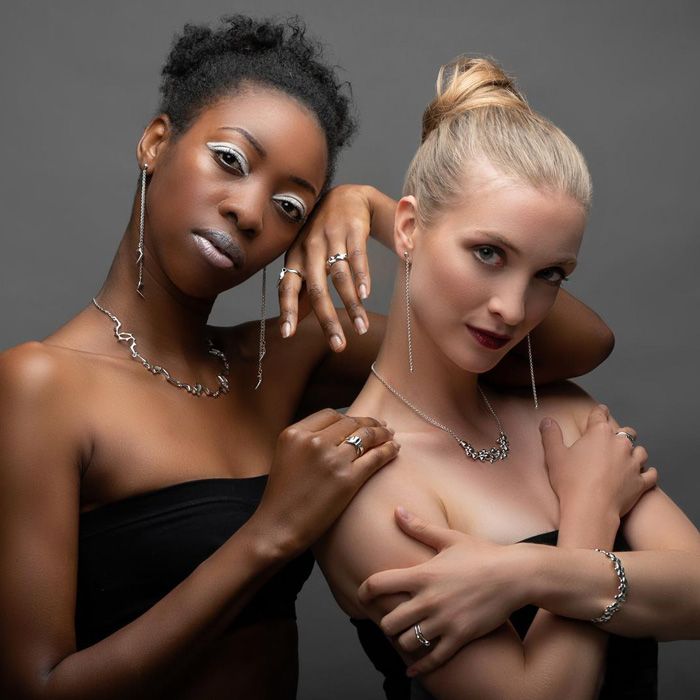Handcrafted in sterling silver with gold vermeil, this alternative and elegant pair of heart shaped stud earrings is the perfect gift for a stylish free-spirited nature-lover. Part of the mini “gifting” collection called Heart of Stone, this pair of studs is also available in silver and black colour. And it can be purchased on its own or as a set, together with the matching pendant (also available in 3 colours). Inspired by the fascinating creation of Nature, the designer has reproduced the shape of an unusual mineral found on display at the Natural History Museum and turned it into heart shape stud earrings. While some of us find hearts a bit ridiculous, we have come to embrace this iconic shape when we see it being reinvented by Nature. In opposition to the cute cliché heart shape, the name “Heart of Stone” is of course a bit sarcastic, but it also makes reference to the heart shape stone at the museum.
This pair of earrings is not hallmarked due to its light weight.
- Care: Gold vermeil can wear off over time, but don’t worry a professional jeweller can re-apply the gold vermeil. However to extend the life of your piece, here are a few suggestions. Avoid your piece getting in contact with cosmetics, heat or chemicals. After you have put on your perfume, make-up, hairspray, hand cream, or body lotion, wait at least 10 minutes before you put on your jewellery. Jewellery should also be removed before entering a pool, the sea, or a bath or shower, as well as when exercising or exposing yourself to the sun. Please see our jewellery care page for more info.
- Dimensions: each stud measures 0.7 cm wide x 1 cm height
- Weight: pair approx. 1 g.
- Material: Silver with 18ct gold vermeil. Gold vermeil is a technique that consists of a thick layer of gold over a sterling silver base. Unlike gold plating, gold vermeil has to follow strict rules; the base metal need to be sterling silver, the gold has to be at least 10ct (we use 18ct) and the plating should be a minimum of 2.5 micron thick (we use 3 micron minimum – 1 micron=1/1000th of a millimetre)























